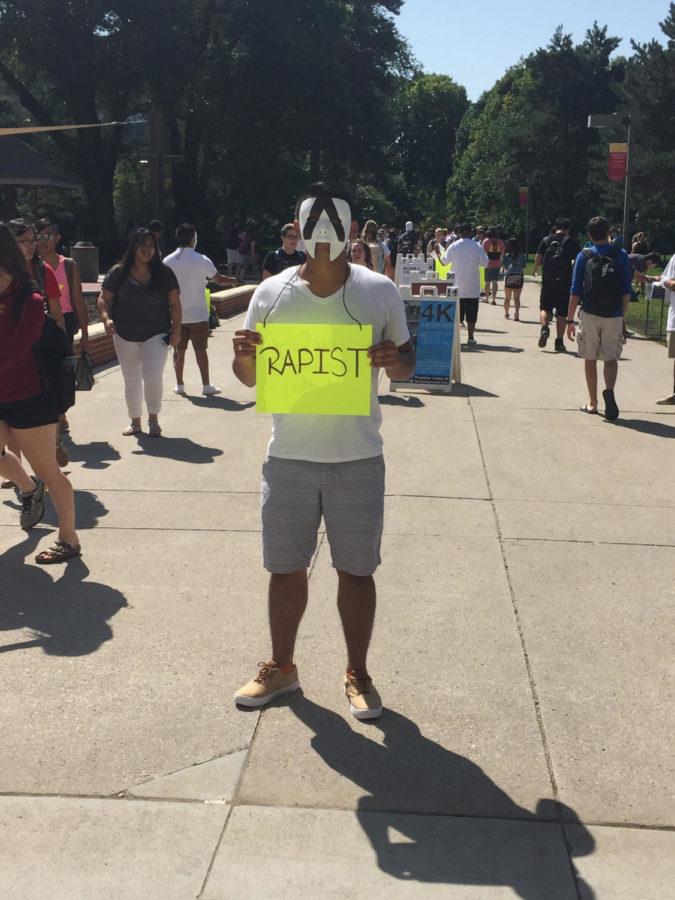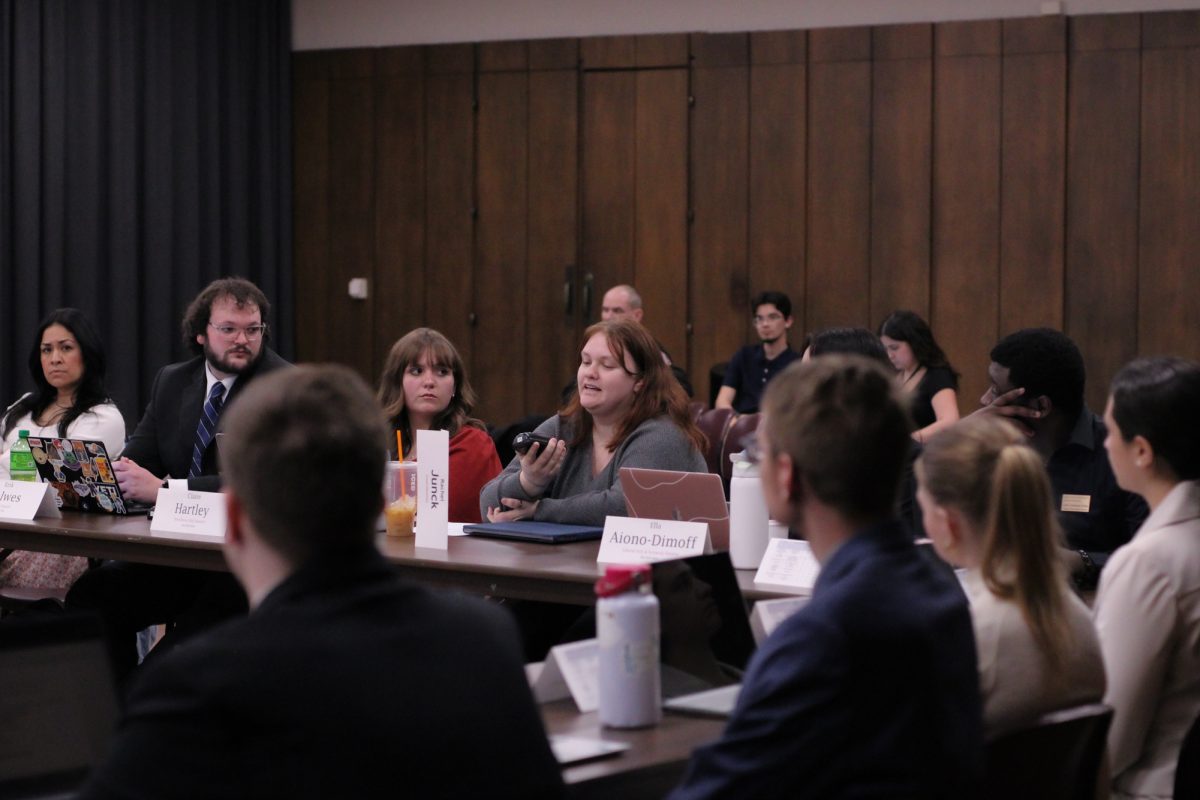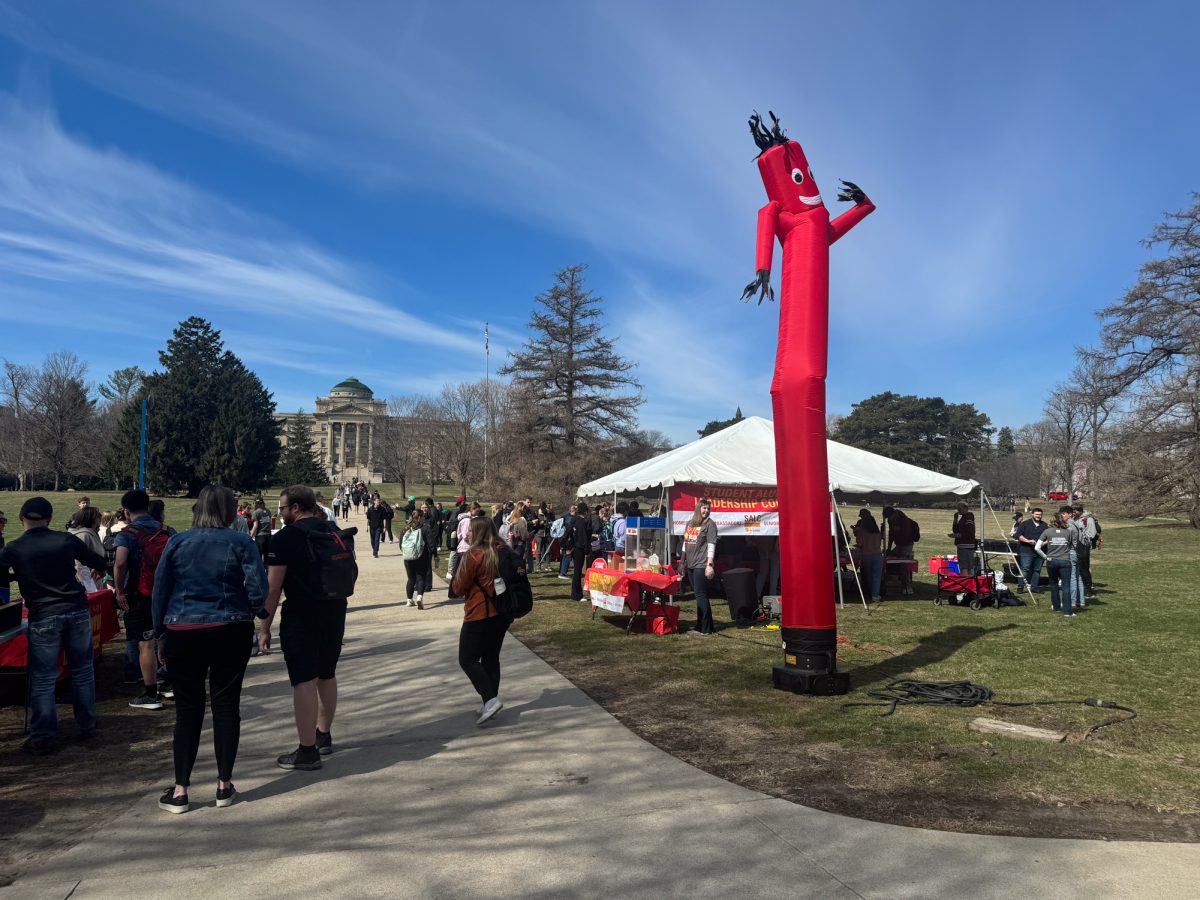Meet An Immigrant introduces stereotype struggle
Jovani Rubio, senior in mechanical engineering, from Guanajuato, Mexico at the Meet an Immigrant event in the free speech zone on campus.
September 4, 2015
If you were walking through the Free Speech Zone outside Parks Library on Thursday during lunch, you may have witnessed a scene straight out of a nightmare — students in masks, some with their eyes covered, wearing signs proclaiming themselves as criminals, rapists and drug lords.
What may have been a disturbing scene for some ISU students is a disturbing reality for others.
The Mexican American Young Achievers Society organized this event to bring attention to the stereotypes they face as immigrants, especially in light of the upcoming presidential election.
Ricardo Corona, senior in civil engineering and the society’s president, said his mission was to set the record straight about Latinos on campus and in the Ames community.
The event, dubbed “Meet An Immigrant,” was fueled by comments made recently by presidential hopeful Donald Trump, Corona said.
“I’ve got to give credit to Donald Trump,” Corona said. “He inspired us to stand up against him for all the hatred and racism he has been spreading.”
Corona estimated that 70 student immigrants participated in Meet An Immigrant. Student participants displayed posters with phrases like “drug lord” or “here to steal your jobs” on one side and their actual identities and majors on the other side.
Corona spoke in front of those gathered, where he quoted Trump’s statement from a speech June 16 that Mexican immigrants are “bringing drugs, they’re bringing crime, they’re rapists.”
“A variety of different studies using different methodologies have found that immigrants are less likely than natives to engage in either violent or nonviolent antisocial behaviors,” Corona said to a growing crowd.
A 2015 report by the Immigration Policy Center confirms Corona’s statement — immigrants, of all nationalities and legal statuses, are less likely to be involved in violent crime than native-born Americans.
Corona also said that immigrants, undocumented and otherwise, pay taxes and help to stimulate the economy.
The Institute on Taxation and Economic Policy found in 2015 that undocumented workers alone paid more than $11 billion in taxes, according to an article in the Fiscal Times.
“Unfortunately immigration policy is frequently shaped more by fear and stereotype than by empirical evidence,” Corona said.
Corona also invited participants and bystanders to share their immigration stories.
Kiara Ariza, sophomore in elementary education, held a sign combating the stereotype of the “anchor baby,” or a child born in the United States to parents who are undocumented in an effort to gain citizenship.
“I was born in California; I was raised here in Iowa,” Ariza said. “I’m proud of being a U.S. citizen.”
Ariza spoke tearfully to the crowd of gathered students about her parents’ journeys from Mexico and Honduras to life in the United States.
“I owe this to them,” said Ariza of her college education.
Ariza said immigrants are here for a reason, not to overrun the United States, but to become apart of society. She said they have hopes and dreams, just like everyone else.
“We’re all students here,” Ariza said. “We’re all trying to get one goal — to graduate and become something bigger in life. I feel like we should all help each other out rather than discriminate or have it be a competition.”
The crowd applauded individual stories and offered verbal encouragement when speakers became emotional.
“I knew a lot of the people who spoke personally,” said Amber Carpenter, senior in biology. “And I never knew their stories.”
Ontorio Drayton, senior in history, was also among the students in the crowd.
Carpenter and Drayton said they hoped events like Meet An Immigrant would inspire ISU students to vote in the upcoming election.
The 2016 election was a continuous theme in many of the impromptu speeches; Trump’s controversial statement was paraphrased several times.
“We’re getting stereotyped as rapists, criminals and drug lords,” Ariza said. “We want to change people’s perspectives on that.”
Corona said the Mexican American Young Achievers Society plans to host at least two more large events this semester. He said the organization would stay busy raising awareness all the way up until the election in November 2016.
“We welcome anyone that wants to learn about Latinos,” Corona said. “The more people who know about us and that we’re here, the better.”
To learn more about the society, visit their Facebook page here.







